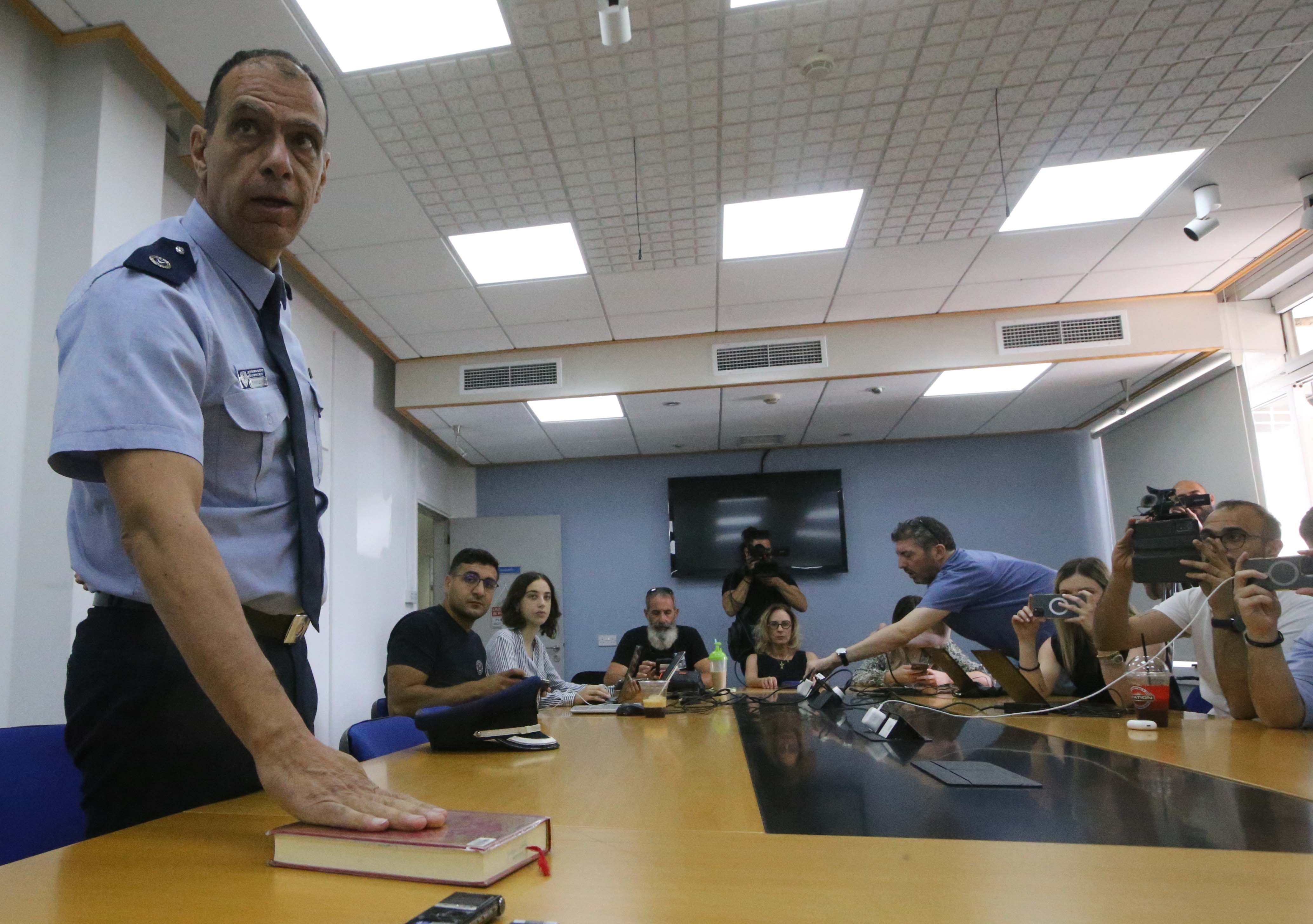It was outside the police’s remit to inform the road safety council of links between potentially faulty airbags and fatalities on Cyprus’ roads, the police’s traffic department director Charis Evripidou said on Monday.
Addressing the committee formed to investigate the history of faulty airbags in Cyprus, he said that when the council is convened, the police is tasked with presenting statistics on fatal road collisions, “and not the details of each collision separately”.
“The police do not report on each accident which occurs separately. If requested, they provide statistical data on the accidents, so that appropriate measures can be taken,” he said.
He then made reference to the cases involving Alexandros Lougos, who suffered life-altering injuries as a result of a faulty airbag in 2017, and of Styliani Giorgalli and of Kyriakos Oxinos, who were both killed in accidents involving faulty airbags, but stressed that no special report was filed.
“For those three cases, no report was made by the police or by any other state agency,” he said.
He was then asked by committee member Michalakis Christodoulou whether reporting the details of such incidents “is a matter of simple logic and duty”, and responded that in all three cases, the police had “addressed the electromechanical service” and requested a mechanical examination of the vehicles.
He said that in Lougos’ case, the electromechanical service had prepared a report, and that the rest of the investigation had been carried out by the police, but said that “anyway, in 2017, we did not know that there was a massive problem”.
Christodoulou pointed out that police expert Yiannos Santafianos had written that Lougos’ accident occurred due to an airbag exploding, and that the police were aware of a report penned by the electromechanical service which stated that “hundreds of millions of cars across the world have dangerous airbags”.
In response, Evripidou said that Lougos’ vehicle had not been subject to a recall, before adding, “the electromechanical service is responsible for this matter”.
“If it was a mass issue, the police were not responsible for reporting such information to the road safety council,” he said.
Christodoulou came back, asking, “did you not consider it a matter of simple logic to bring this information to the attention of the road safety council so that measures could be taken?”, with Evripidou saying that in the cases of Giorgalli and Oxinos, files were sent to the legal service, and that “clarifications are still being requested”.
“It was not the responsibility of the police to provide such information,” he said.
Christodoulou, incensed, asked, “if the police’s investigation revealed that thousands of bombs had been placed in various places, would the police not have been obliged to convey this information higher up so that protective measures could be taken?”
“We have a bomb in both cases,” he added.
Evripidou insisted that “it is not exactly the same” and said that the cases of Giorgalli and Oxinos are still under investigation.
“The road safety council was not informed about the information provided by the electromechanical service’s report, and we do not believe that it should have been done based on what we had in front of us. During the investigation, all the information had been provided to the competent bodies,” he said.
Takata airbags suffer a fault related to exposure to high levels of heat or humidity, which means they have a tendency to explode when released under such circumstances.
This explosion shoots the airbag’s metal inflator outwards and in the direction of the person it was designed to protect, potentially causing further injuries or, in some cases, death.
Transport Minister Alexis Vafeades had in February ordered the recall of more than 80,000 vehicles equipped with potentially deadly Takata airbags, with replacements to be completed by October. Of those, 276 vehicles were immediately immobilised and had their road tax and MOT certificates rescinded.
The committee was created later in the same month to investigate the history of the matter, but nine transport ministers, past and present, all stated that they were unaware of the problems caused by the airbags when they took office.
Vafeades told the committee that he had first been made aware of the issue by Kyiakos Oxinos’ father Yiannis Oxinos during a meeting between the pair in April 2023.
Owners of recalled vehicles that were not immobilised are allowed to continue using them but must book an appointment with the manufacturer’s Cyprus-based distributor within eight months to have the airbags replaced. Their road tax and MOT remain valid.
While the transport ministry recommends that affected drivers avoid using their vehicles and seek alternative transport, compliance is not mandatory and no fines will be issued for continued use.
Motorists can check whether their vehicles have been subject to vehicles on the transport ministry’s website.







Click here to change your cookie preferences